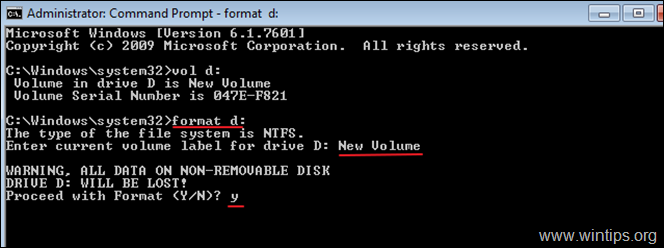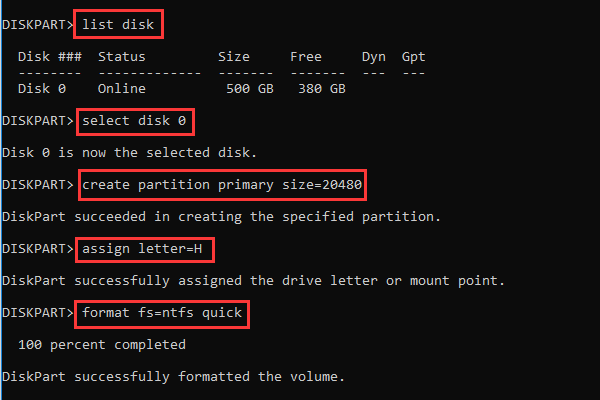

- #Diskpart format ntfs ssd how to
- #Diskpart format ntfs ssd install
- #Diskpart format ntfs ssd drivers
If you prefer other file system formats, change the command ntfs to the desired one such as fat32, exfat, etc. Step 7: After diskpart successfully created the specified partition, type format fs=ntfs and press "Enter". I formatted the drive in NTFS format, installed it and booted up the system. Step 6: Type create partition primary and press "Enter". The WD Blue 3D NAND SATA SSD is optimized for the demanding power management.


Step 4: Now type select disk 2 and press "Enter". command prompt, diskpart, format drive Type assign and then press enter on the keyboard to assign a drive letter. On the main interface, click Apply to commit the operation. You can assign a file system in this small window, click OK.
#Diskpart format ntfs ssd install
Install and open this formatting tool, and choose the SSD by right-clicking, and click Format Partition. According to the list disk information, check which disk is your USB flash drive. Format SSD with NTFS/exFAT formatting tool Step 1.
#Diskpart format ntfs ssd drivers
Step 3: Type list disk and press "Enter". Method 1: Update drivers for the external hard drive Method 2: Format RAW partition to NTFS/FAT32/exFAT/EXT4 using DiskGenius Free Method 3: DiskPart. Step 2: On the Command Prompt window, type diskpart and press "Enter". Right-click on it and choose "Run as administrator". Step 1: Type cmd in the search box, then you can get the best match called Command Prompt. At last, assign a drive letter to the newly created partition by typing assign. It tells DiskPart to format the disk to a specific file system, let it be NTFS, exFAT, etc. (The following steps are performed on Windows 10 PC.) After DiskPart successfully created the specified partition, type format fsntfs (or format fsexfat) and press 'Enter'.
#Diskpart format ntfs ssd how to
So here comes the question, how to format a USB flash drive? This page mainly illustrates how to format a USB flash drive using Windows inbuilt Command Prompt, and the following is the detailed guide you should strictly follow.By formatting, you can easily fix any USB flash drive, pen drive or memory stick that is write protected, virus infected, corrupted, damaged, unreadable, unrecognized by PC and Mobile.What's more, it's inevitable to develop bad sectors or corruption issues on a specified flash drive after a long-time use.The truth is that no matter what drive you're using, it must have a valid file system so that Windows can recognize it and put it to use.Yes, they are removable storage devices such as USB flash drive. Meanwhile, there are many other types of prevailing devices with more flexible features for different purposes.The storage devices that are widely used nowadays are typically HDDs and SSDs, which are always set up on a PC/Mac to install the operating system and store data files.How to Format USB Flash Drive from Command Prompt


 0 kommentar(er)
0 kommentar(er)
